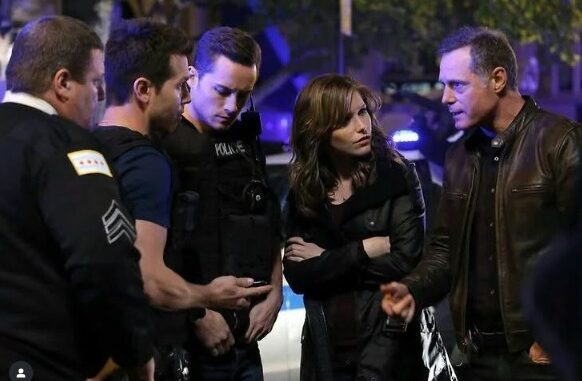
The wait is finally over — Chicago P.D. is back, and Season 13 wastes no time throwing viewers straight into the emotional chaos and moral conflict that define the series. The two-part opener, Episode 1: “Consequences” and Episode 2: “Open Wounds,” sets the tone for a season that promises deep character reckonings, painful aftermaths, and the kind of intense storytelling that fans have come to expect from the Intelligence Unit.
Episode 1: “Consequences” — The Price of Every Decision
Season 13 begins right where the explosive Season 12 finale left off — with the team grappling with the fallout of Martel’s shocking death. The episode centers heavily on Ruzek (Patrick John Flueger) and Burgess (Marina Squerciati), both reeling from trauma yet trying to keep moving forward. Ruzek’s guilt runs deep, and Flueger delivers one of his most nuanced performances to date. His portrayal of a man torn between justice and self-forgiveness adds real emotional depth.
Meanwhile, Voight (Jason Beghe) faces pressure from every angle — his leadership questioned, his moral compass challenged. The episode’s title, “Consequences,” couldn’t be more fitting, as every member of the unit is forced to confront the ripple effects of their past choices. The pacing is tight, the tension palpable, and the writing leans heavily on the show’s trademark realism: actions have costs, and justice is rarely black and white.
Episode 2: “Open Wounds” — When Healing Isn’t an Option
If “Consequences” explored the fallout, “Open Wounds” digs into the scars left behind. The focus shifts to Torres (Benjamin Levy Aguilar), who begins to spiral emotionally after a particularly brutal case hits too close to home. The episode portrays Torres as both vulnerable and volatile — a reflection of how trauma lingers long after the case is closed.
The dynamic between Torres and Voight is a standout, revealing the generational and ethical tension within the Intelligence Unit. Voight’s old-school methods clash with Torres’ growing disillusionment, making for some of the most gripping dialogue of the season so far. It’s a reminder that while the criminals change, the emotional weight of the job remains constant.
Squerciati continues to shine as Burgess, whose quiet strength and empathy ground the chaos around her. As for the show’s atmosphere — dark, moody cinematography paired with hauntingly personal cases — Chicago P.D. remains unmatched in its ability to merge crime drama with raw emotion.
Final Verdict
The Season 13 opener reaffirms Chicago P.D. as a show that’s not afraid to evolve. “Consequences” and “Open Wounds” don’t rely on flashy twists; instead, they explore pain, guilt, and resilience in a way that feels deeply human. Each episode leaves you thinking — about loyalty, redemption, and the personal cost of protecting others.
With its gripping performances and emotionally charged storytelling, Chicago P.D. Season 13 is off to a phenomenal start. If these first two episodes are any indication, this will be one of the most powerful — and painful — seasons yet.
